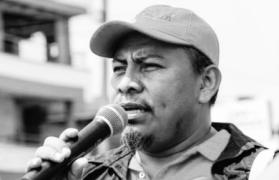International Women’s Day Marchers Reject Bukele’s Politics
Thousands of women commemorated International Women’s Day in El Salvador by marching in the capital on March 8 and 9 in the first mass protests since Nayib Bukele’s unconstitutional reelection. Bukele and his government were a focus of criticism, with marchers citing his opposition to legalizing abortion, turning a blind eye to violence against women, and the deterioration of economic conditions under his government, which disproportionately affect women.
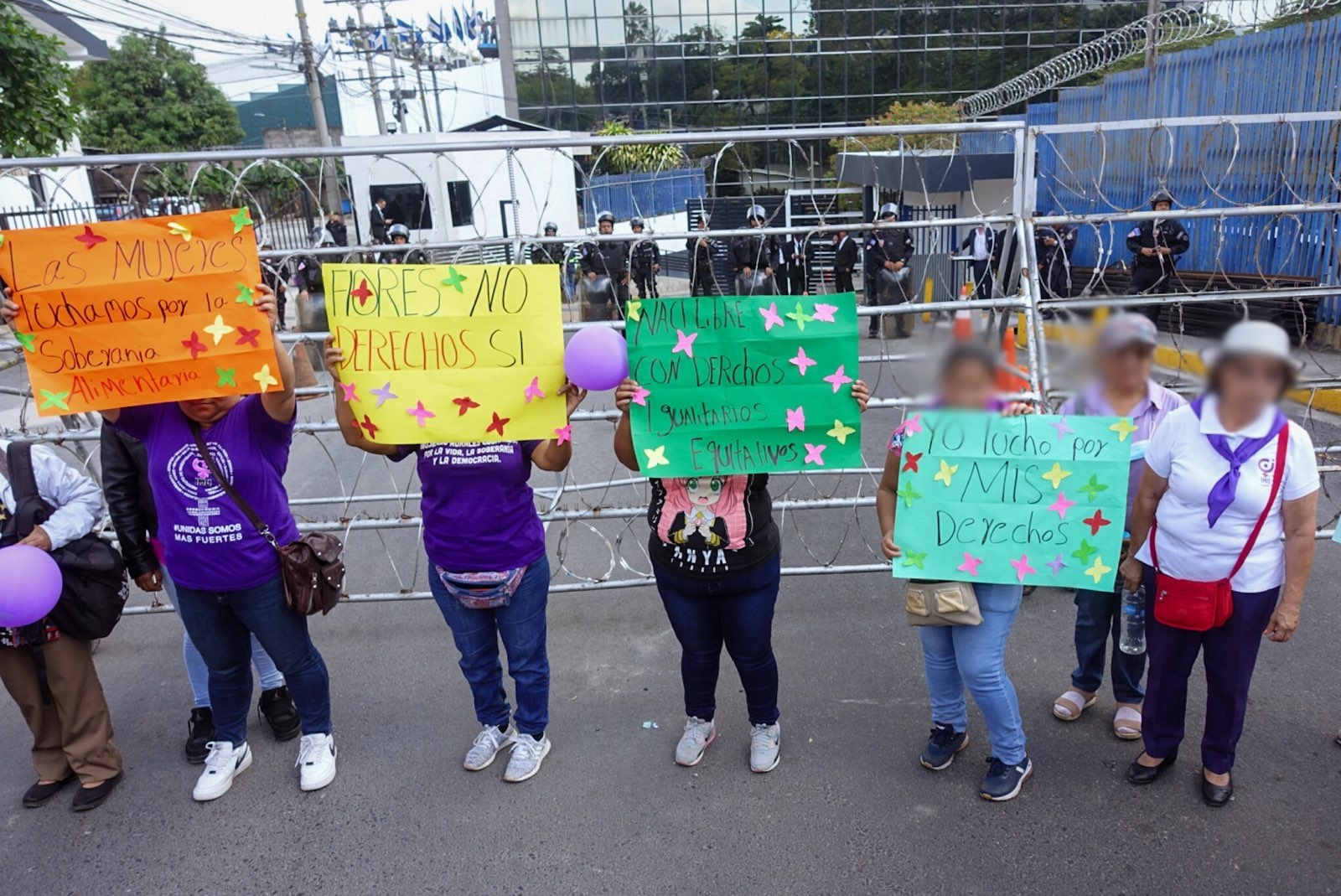
"Women fight for food sovereignty," "We don't want flowers, we want rights," "I was born free with equal and equitable rights," and "I fight for my rights." The second sign is in reference to Bukele's recent government order to transplant flowering trees to San Salvador's historic center.
Friday’s march, convened by Resistencia Feminista, brought together thousands of women including wide participation from the country’s rural areas. In addition to denouncing the particular impacts that current issues like the State of Exception, illegal mass firings, lack of access to healthcare and declines in the agricultural sector have on women, Friday’s march aimed to highlight the issue of El Salvador’s minimum wage, by ending at the offices of the National Minimum Wage Council at the Ministry of Labor. Despite being cut off from reaching its destination with wired fencing by police in riot gear who had placed barbed wire fencing, a small contingent made it through and delivered a letter calling on the ministry to raise the minimum wage by 25%, which stands at $243.50 in rural areas and $365 in urban zones, reiterating a call made by organizations earlier this year and adding to it by calling for a 27% increase for domestic and maquila workers - sectors made up largely by women.
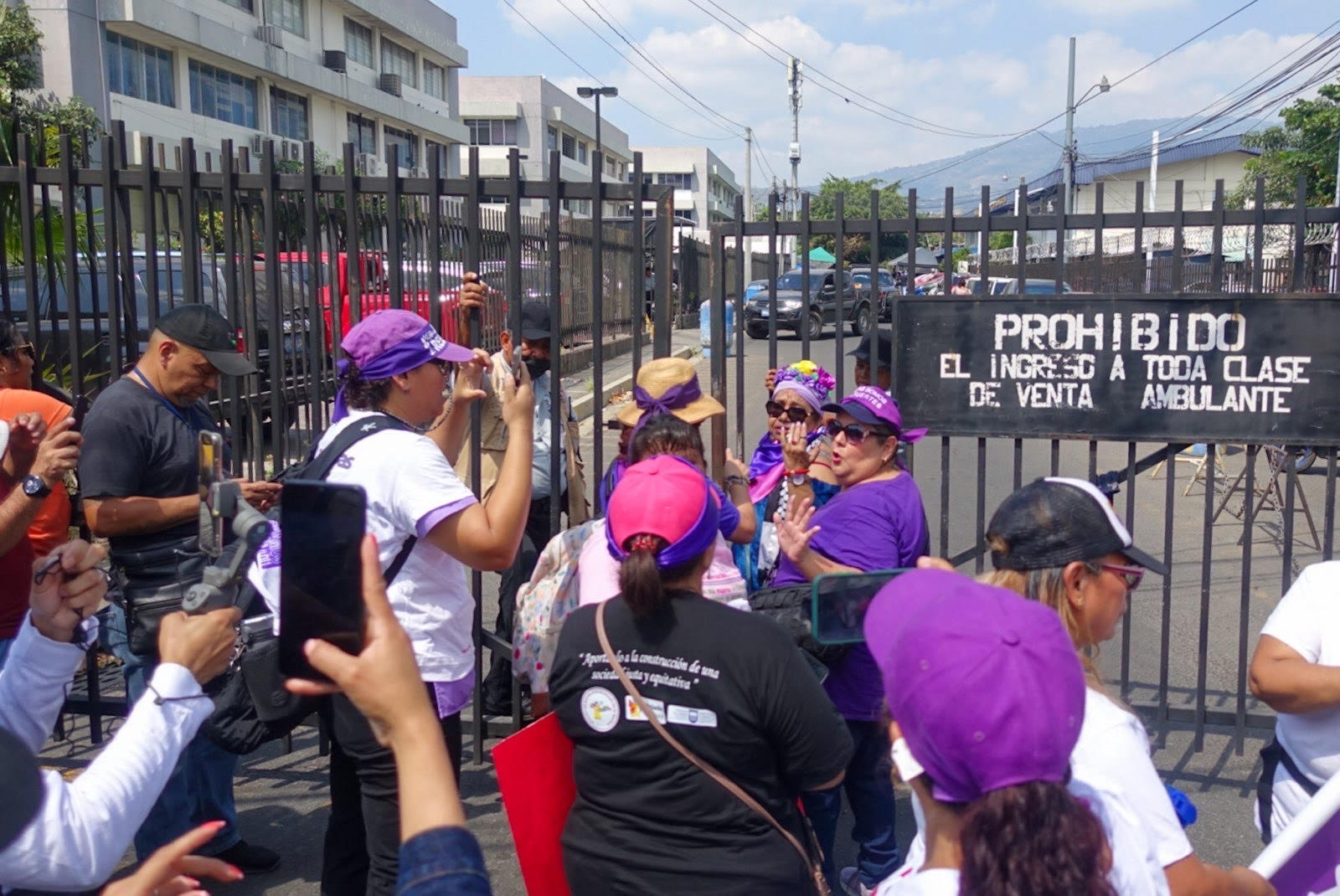
As the legally mandated three-year minimum wage update nears this September, the organizations argue this update is needed to help close the gap that exists between the current minimum wage and the disproportionate cost of living, especially given the increase of basic staples which have gone up at least 31% since the last minimum wage hike. Surveys have shown that Salvadorans have been forced to reduce how much they eat, even to the point of eliminating a daily meal altogether.
Friday’s march also included a contingent of the Victims of the Regime Movement (MOVIR), which is made up of people whose loved ones have been detained under El Salvador’s multi-year State of Exception. The State of Exception has led to thousands of women being held in inhumane prison conditions with no access to a trial or legal representation. It has also led to additional hardships for women whose partners or children make up the nearly 80,000 people detained under the measure. Many women have been forced to raise children either in the absence of a partner parent's income or raise the children of their imprisoned daughters, sons, siblings and other loved ones, as well as make monthly trips to prisons in order to pay for basic, costly supplies for their loved ones in detention.
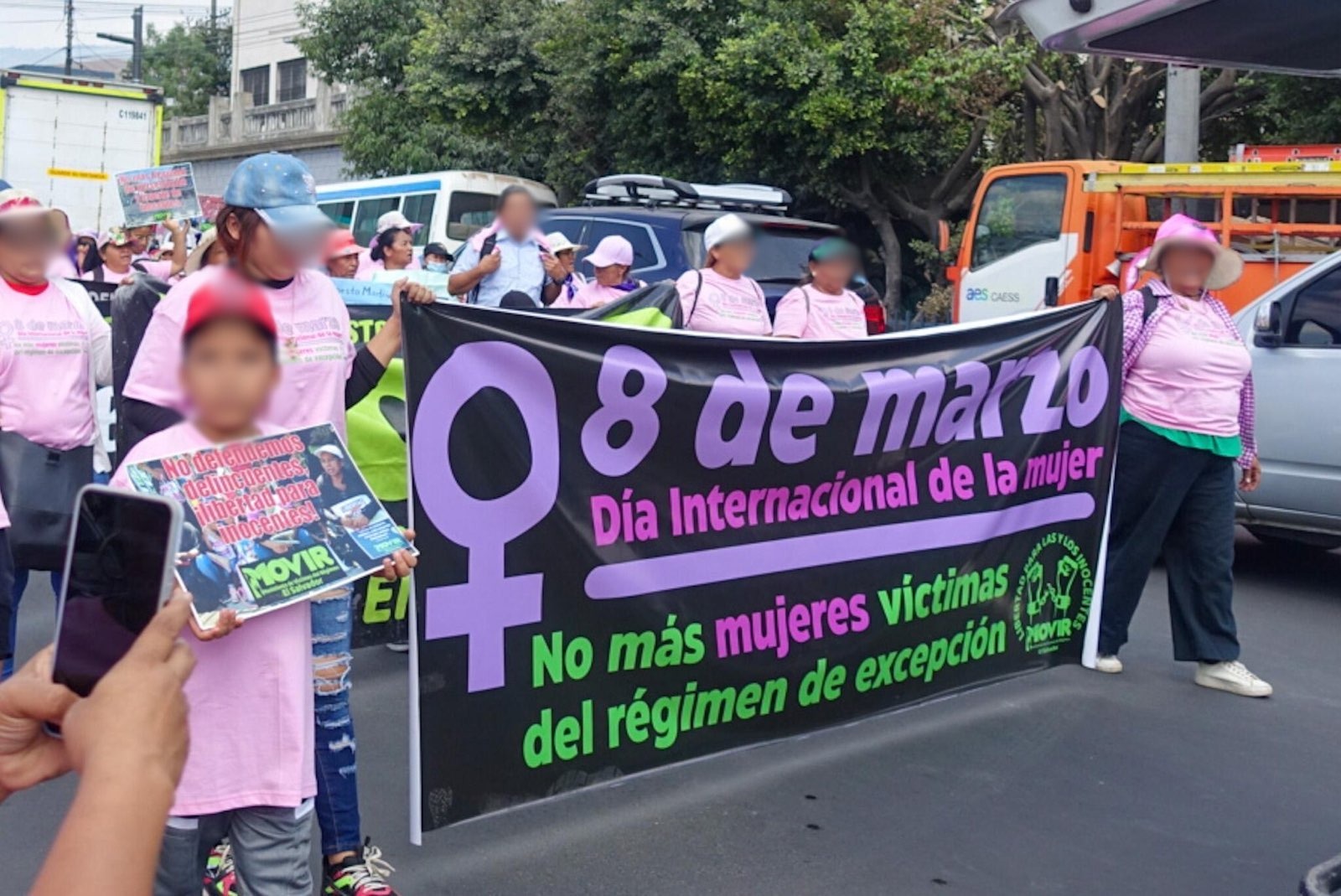
"No More Women Victims of the State of Exception"
Saturday’s march, led by Asamblea Feminista, saw significant participation from young women from urban areas. As it made its way from the public University of El Salvador to Cuscatlan Park, it left spray-painted and wheat-pasted messages in its wake and had messaging confrontational to Bukele and his government. It also boasted a significant showing from the LGBTI+ community. Queer and trans women, following recent government directives in which educational materials on gender diversity and sexual health were removed from schools and clinics, voiced their rejection of government policies which put their community at risk.
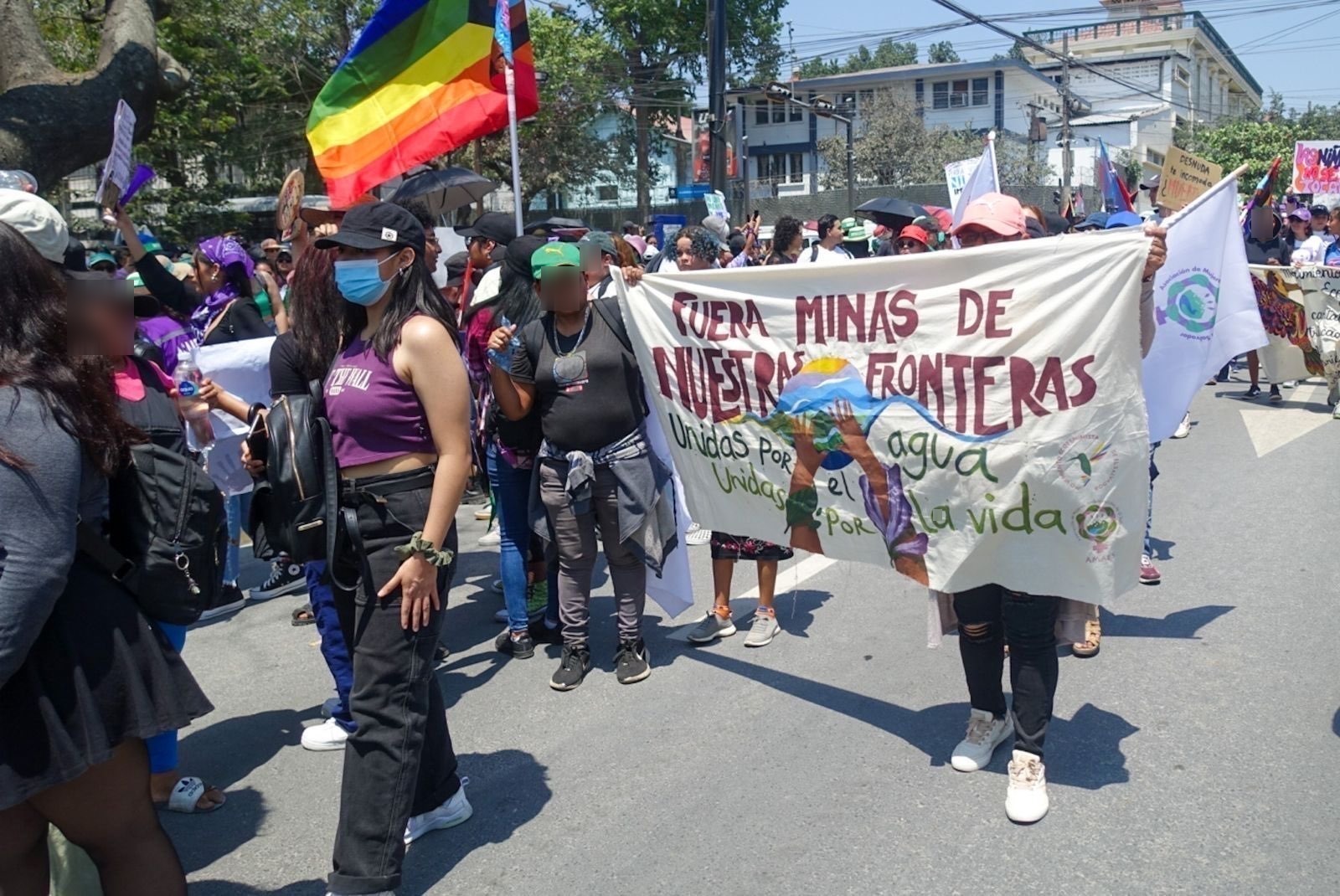
"Get mining out of our country- United for water, united for life"
In a statement leading up to the march, Sonia Urrutia, from the Popular Resistance and Rebellion Bloc (BRP) issued a call to women from all walks of life to organize. “We believe that the only way to put an end to this misogynist and authoritarian regime is to take to the streets to fight for, and defend, our rights.”
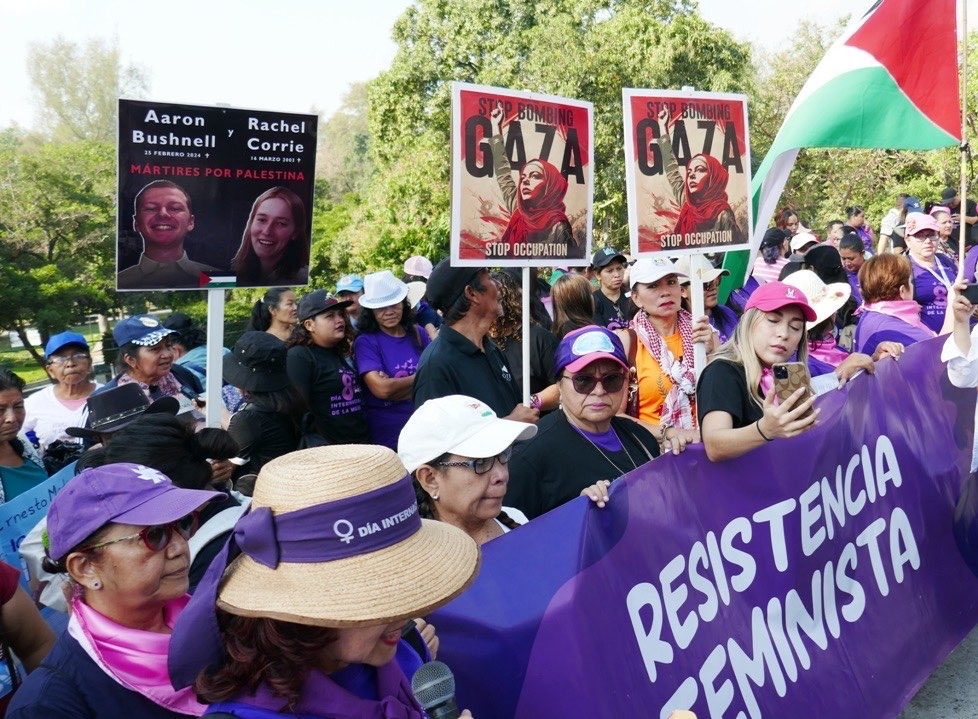
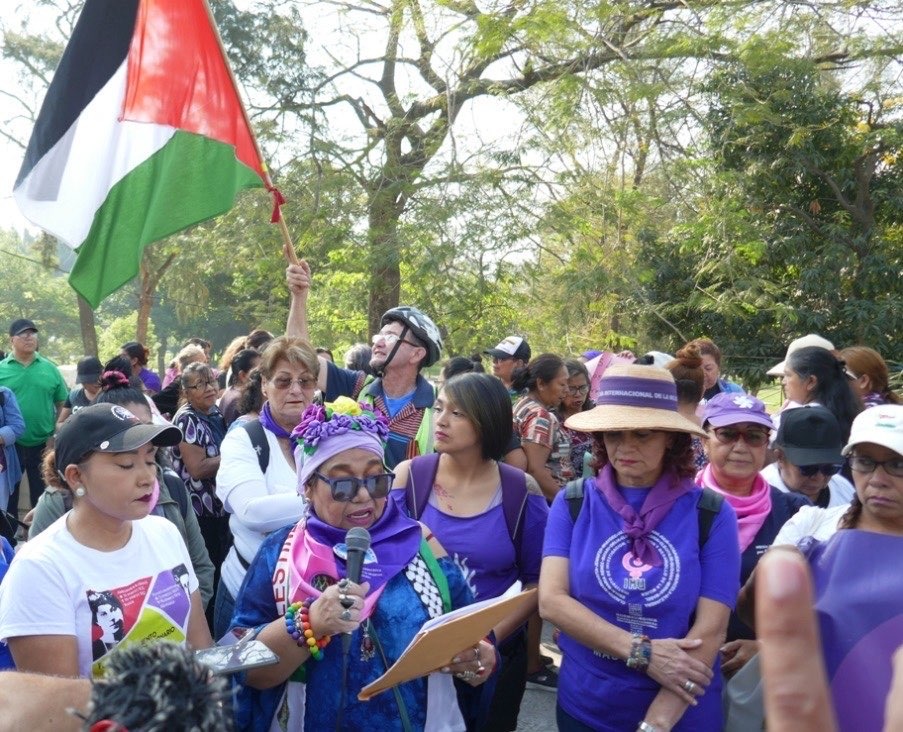

 "I am a CISPES supporter because continuing to fight for social justice and a more people-centered country means continuing the dream and sacrifice of thousands of my fellow Salvadorans who died for that vision.” - Padre Carlos, New York City
"I am a CISPES supporter because continuing to fight for social justice and a more people-centered country means continuing the dream and sacrifice of thousands of my fellow Salvadorans who died for that vision.” - Padre Carlos, New York City

